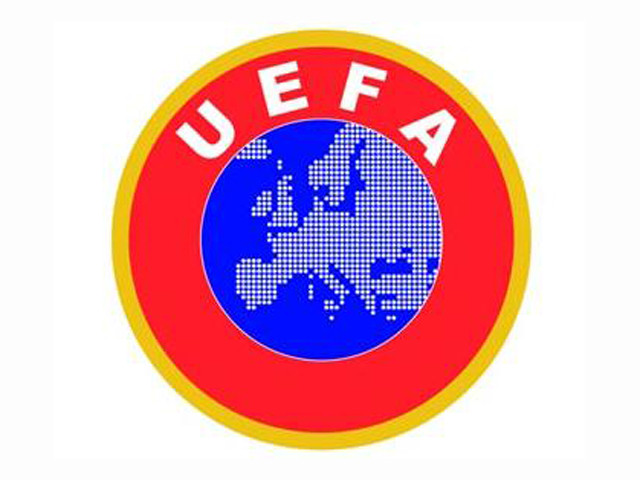There’s an ongoing debate over the financial muscle of ‘big clubs’ and the amount of money they throw on player transfers - extraordinary amounts of money are seen being splashed out in the transfer window even with the existence of what we’ve come to know as an ‘economic recession’.
While clubs like Real Madrid and Manchester City have bored followers by their excessive transfer spending, the recent excursion into the window by Chelsea has raised quite a few eyebrows among the general public and UEFA officials. UEFA’s answer to all these problems is the controversial ‘Financial Fair Play’ legislation. There is talk of putting budget caps on clubs and limiting the maximum amount of transfer fee possible.
However, while some continue to praise this idea, I question how anyone can put a budget limit on the evaluation of a player. In my opinion, players in the market are similar to a sellable product and so their price is directly related to their quality and demand. For instance, if Liverpool value Fernando Torres at 50 million euros and a suitor meets their demand, no higher authority has the right to tell them otherwise. Is the same principle not applicable in global economics?
Besides, while we’re arguing the point of transfer fees and big clubs spending big, we tend to ignore another more important (and unfair) aspect of the transfer window which is of player seduction. Every transfer window, the latest being no exception, sees the bigger clubs make absolutely ridiculous bids on players of smaller clubs, greatly undervaluing the latter’s evaluation of the player. The motive behind this is that while the smaller clubs operate on modest wage budgets, the bigger clubs can offer players high wages and lucrative sponsorship deals. With such jewelry on offer, these clubs don’t require the use of appropriate money to gain the attention of a player. What we have then is an antagonised player handing in transfer requests and forcing himself out of the club with minimal compensation.
For instance, Liverpool managed to come out of the mega transfer of Fernando Torres by recouping the loss by buying two exceptional players with the compensation paid by Chelsea. Blackpool, however, were put in an uncomfortable situation where a meagre amount was offered for their star player Charlie Adam, an amount which would’ve made it impossible for the club to replace him with a worthy substitute. It must be stressed that these smaller clubs have to offer a lot more to make quality players stick around because they don’t possess the glitz, glamour and support of media nor can they guarantee the player success.
So while we have football’s governing bodies arguing among themselves over imposing budget caps, we have the smaller clubs still suffering from the bullying of the top dogs. More so, as far as my understanding goes, introducing budget caps would not reduce the frequency of transfers in the market, but only limit a club’s spending power. This means that player prices would plummet as the bigger clubs would continue to use their seduction powers to get hold of players.
An even more worrying trend, as seen by this market, is how the bigger clubs are ignoring the stipulations made by Financial Fair Play. Manchester United, a club bare to the bone on losses due to its yearly debt, has already splashed 56 million euros on transfer while they still remain in the market for a potential 25 million signing. In comparison Chelsea, a team reporting annual losses of more than 70 million, has splashed out 80 million euros in January and are reportedly willing to give their new manager a transfer kitty of 70 million.
Over in Spain, Barcelona recorded an annual loss of 83 million which after applying for credit reduced to 23 million. However they’re still in the market for Alexis Sanchez and Cesc Fabregas which should see them spend somewhere in the region of 75 million. Real Madrid are on a similar train.
The Serie A, economically bankrupt already, are somewhat showing greater responsibility but with people like Moratti and Galliani heading the transfer activity, I just can’t rule out some big number spending.
The Financial Fair Play categorically states that if a team records a deficit of 40 million plus, they will be barred from all UEFA competitions. The deficit number is of 17 million if the club’s costs are not being subsidised by the club’s owner. From where I’m sitting, and from what my sources tell me, all of Manchester United, Chelsea, Manchester City, Barcelona, Real Madrid, AC Milan and Inter Milan will not meet the maximum deficit cut off requirement issued by the first phase of Financial Fair Play.
It would be interesting to see whether UEFA implements its penalty on these clubs of banning them from the competitions. UEFA must take into consideration that removing all seven of these clubs would not only isolate them from the G-14, but also greatly undermine their competitions and lead to huge losses in TV revenue. To be honest, it is these seven teams that make UEFA competitions the pinnacle of football and replacing them with the likes of Tottenham or Sporting Lisbon isn’t going to do the ratings any good.
These clubs hold considerable leeway at the higher authorities and their brand name constitutes enough influence to turn any decision in their favour. That being said, as silky as Platini was a player, I can’t see him dribbling away from this. It’s either these seven clubs or the man’s reputation.
The inadequacies of 'Financial Fair Play'
Players are similar to a sellable product and so their price is directly related to their quality and demand.



COMMENTS
Comments are moderated and generally will be posted if they are on-topic and not abusive.
For more information, please see our Comments FAQ